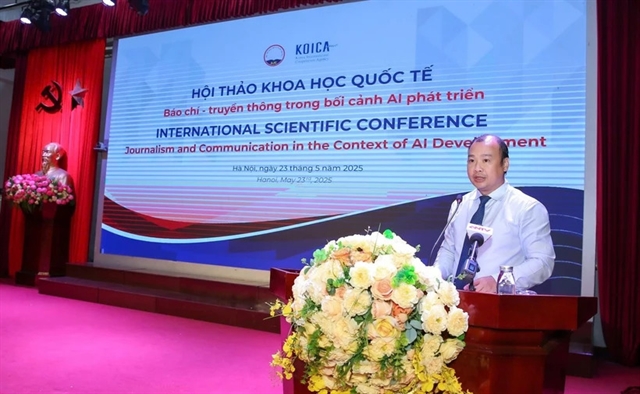HÀ NỘI ( WNAM MONITORING ): Experts gathered for an international conference in Hà Nội on Friday organised by the Academy of Journalism and Communication (AJC) and the Korea International Cooperation Agency (KOICA). They discussed how journalism must adapt to meet the evolving demands of the digital age.
Permanent Deputy Minister of Culture, Sports, and Tourism Lê Hải Bình stressed the profound impacts of AI, warning that while the technology offers powerful tools for media development, it poses significant ethical challenges such as the spread of fake news and manipulation of public perception.
Against that backdrop, he called for an interdisciplinary and flexible approach to media governance that involves the State, press agencies, and journalism schools in nurturing future journalists and helping safeguard the Party’s ideology. He emphasised that journalism is entering a new era where technology can generate and distribute news faster than humans. However, the core values of journalism—truthfulness, integrity, and constructive social contribution—remain the responsibility of humans.
It is necessary to complete a legal framework for AI in journalism, support the adoption of advanced technologies in newsrooms, and enhancing digital capacity among journalists, Bình said, stating education institutions play a key role in preparing human resources adaptive to modern media landscape.
Assoc. Prof. Dr. Dương Trung Ý, Deputy Director of the Ho Chi Minh National Academy of Politics, held that journalism must master AI to better serve national development and policy communication, while upholding the ideological foundation of the Party. He urged the AJC to conduct a comprehensive review of AI’s impact on journalism and to propose strategic recommendations, including curriculum reform, AI research, and training for educators.
Meanwhile, Director of KOICA Vietnam Office Lee Byunghwa pledged support for Việt Nam’s media development through continued knowledge exchange and collaboration with the AJC and other Vietnamese partners.
The conference focused on four key areas, namely AI’s impacts, its opportunities and challenges, policy, technology and training strategies, and the role of education institutions in preparing the next generation of journalists.








